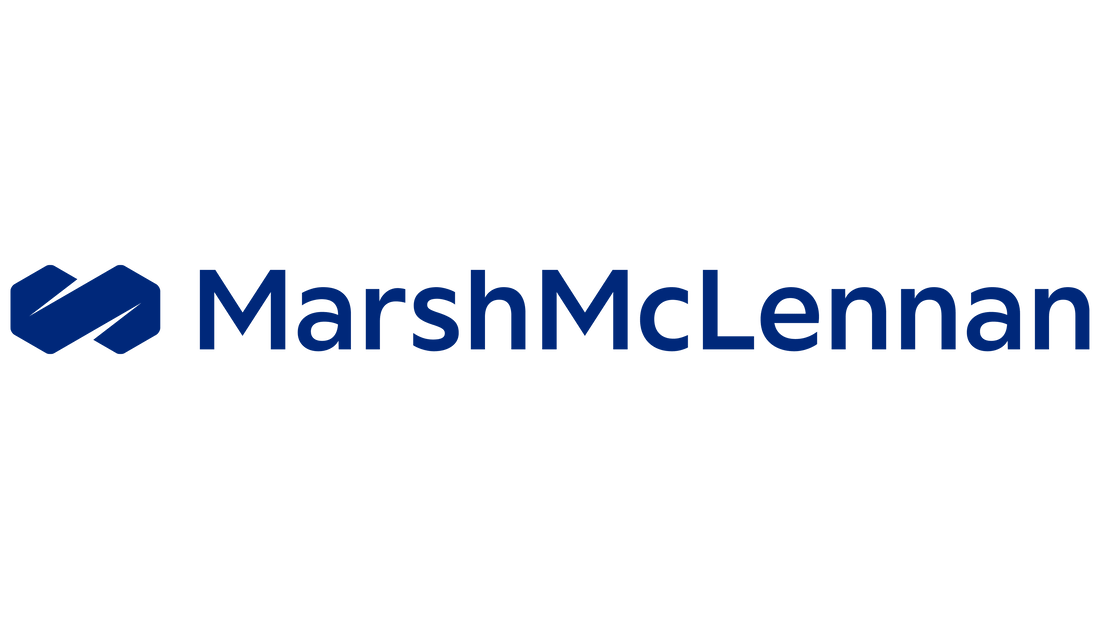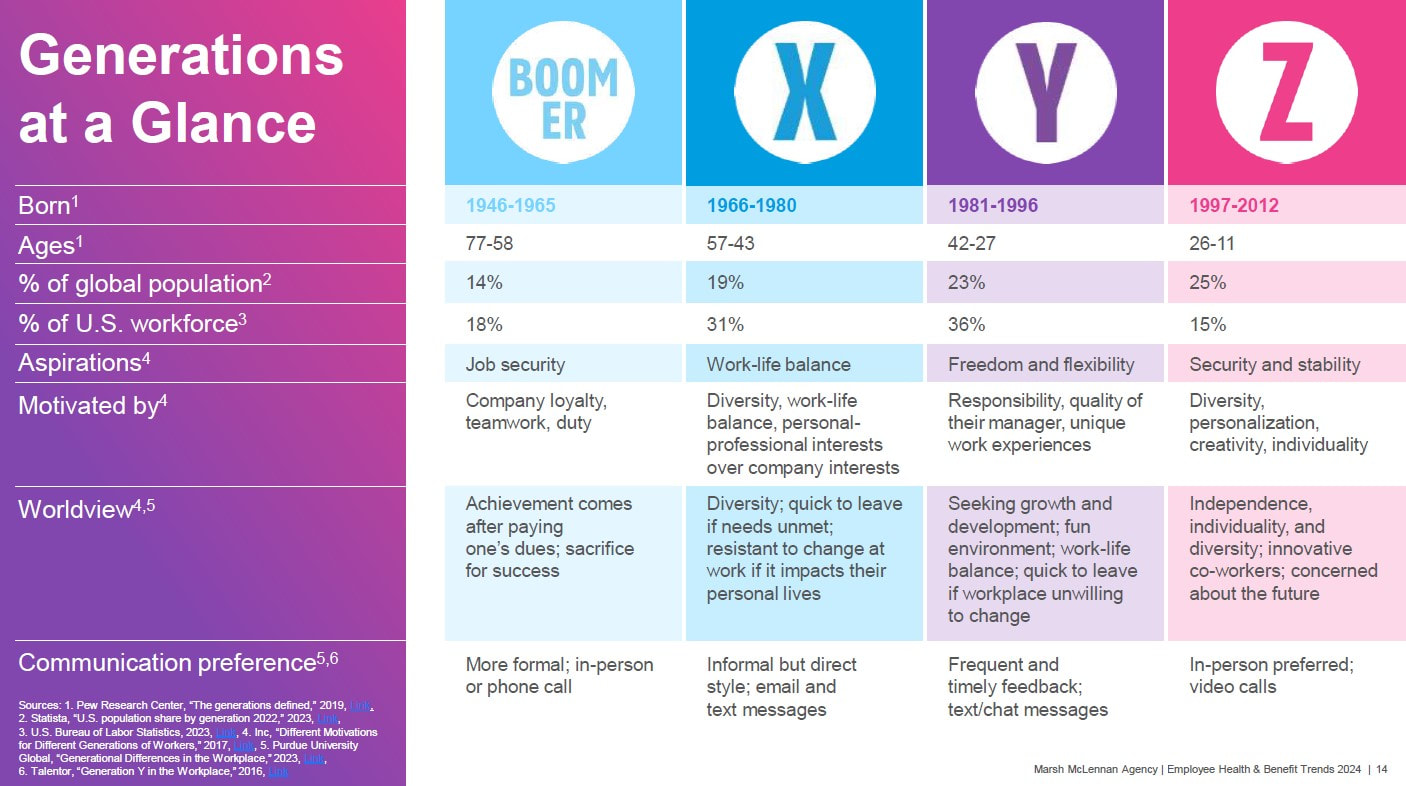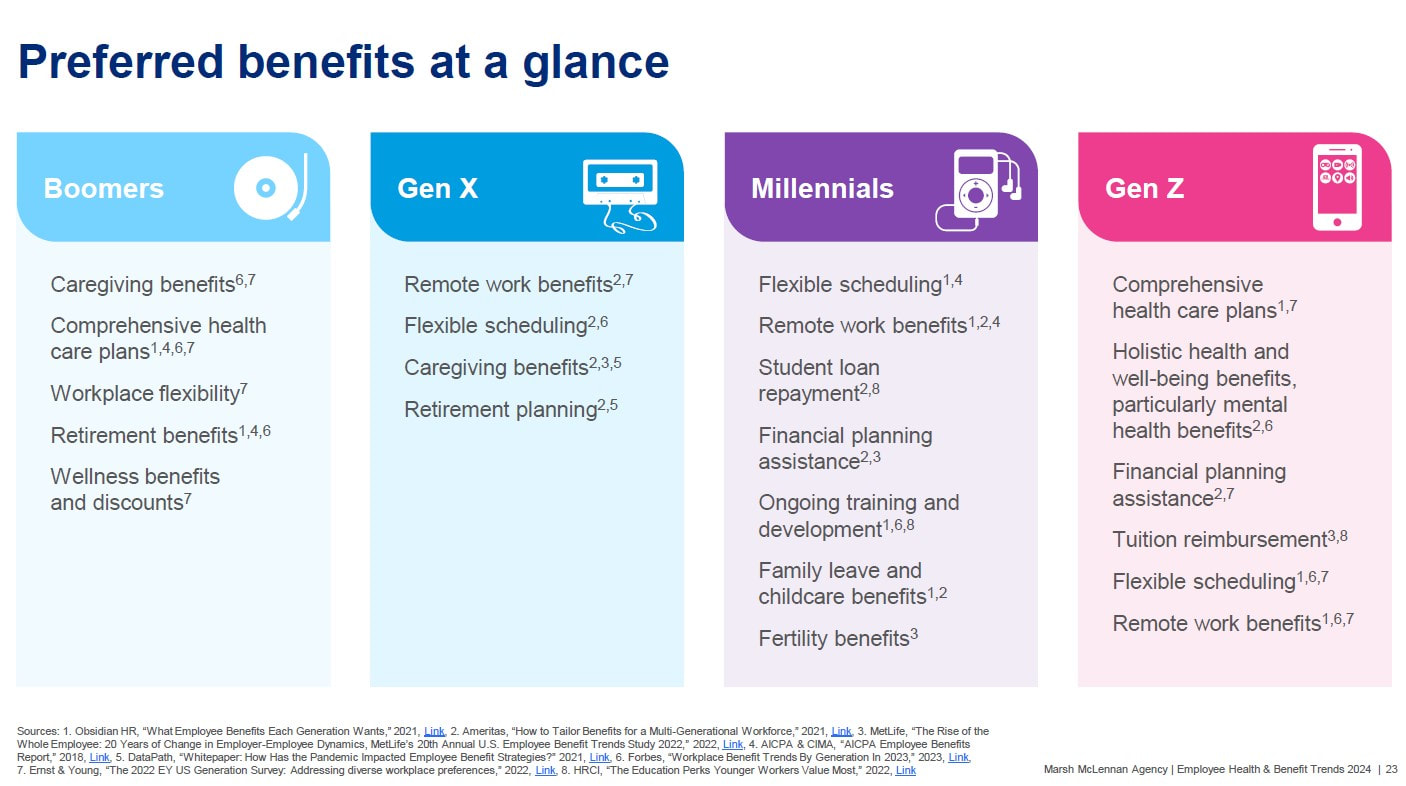By Jacob Colmenero, MarshMcLennan Agency Four generations in one workplace Today, most workplaces, especially medical organizations, include four generations of employees: Baby Boomers (born 1946-1965), Gen X (born 1966-1980), Millennials/Gen Y (born 1981-1996) and Gen Z (born 1997-2012). While these team members may work under the same roof or corporate Zoom account, they live in different worlds. Each generation has varying value systems, concerns and expectations for life and the workplace. In a recent global survey of employers and employees conducted by MarshMcLennan Agency, employees shared that their unique economic challenges, health care issues, values and work attitudes shape their expectations for workplace experiences and benefits packages. According to 95% of employers, benefits are more important than ever and, in some cases, of equal importance to pay increases. By breaking down these expectations by generation, we can learn a lot about taking a customized approach to employee benefits and experiences that keeps employees engaged and validated. Boomers’ valued benefits The Woodstock generation may have been carefree and without financial worry when they were younger, but as they approach retirement, Boomers in the workplace today value 401(k) matching and financial planning support. According to Inc’s “Different Motivations for Different Generations of Workers” study, 71% of this aging generation also prioritizes health insurance, and 84% seek wellness perks, such as gym membership discounts. Boomers may be working longer than previous generations, but they are seeking more work flexibility, with many seeking part-time roles. “Flexibility” tops 33% of Boomers job search priorities, surpassing all other generations. Gen X valued benefits The last generation to really know what it was like to live without a cell phone or the internet often has the motto, “Work to live, not live to work.” Gen Xers prioritize flexibility for family time as many may be balancing caring for their own children as well as elderly parents. The Ernst & Young “2022 EY US Generation Survey: Addressing diverse workplace preferences” reports 64% of Gen Xers expect flexibility in the workplace. They also are highly independent and entrepreneurial, finding fulfillment in control of their careers and roles. Additionally, Gen Xers report fair pay and benefits in boosting their job satisfaction, with 60% saying financial stability is a major concern and key stressor in New York Life’s study “Gen Xers are the most worried about their financial health.” Millennials’ valued benefits From idols ranging from Beyonce to Bernie Sanders, Millennials are a diverse group deeply affected by shifts in the world’s economy, political landscape and culture. As a result, their relationship with work and money differs from other generations. Millennials value purpose over profit, with half willing to accept lower pay for more meaningful work, according to HR Dive’s “Millennials seek meaning at work — and employers can help” report. They also prioritize learning and seek managers as coaches, not just bosses. With higher student loan debt, Millennials struggle to buy homes and manage living costs. A MetLife report finds 43% consider student debt assistance a crucial benefit. Gen Z valued benefits The generation who grew up watching YouTube is just starting to enter the workforce, carrying much anxiety about their own future and the world’s. Gen Z seeks well-being benefits for their overall health, with 61% saying they would consider changing jobs for better mental health benefits according to SHRM’s “2023 State of Mental Health & Well-Being in the Workplace.” They also worry about daily finances and retirement security. Despite carrying stress around money, Gen Z, over other generations, evaluates companies based on their social awareness and impact. A Deloitte and NEW study finds 77% of Gen Z say it is vital to work for a company whose values align with theirs. Customizing your benefits’ approach
As you consider how your benefits could address generational needs and values, focus on understanding your different segments of employees, offering employees choices, centralizing tech options and HR support to streamline delivery and save money, and offering empathy to all employees no matter how their generational values may differ from your own. In the words of Bill and Ted, “be excellent to each other,” and excellence is sure to award your workplace. Jacob Colmenero of MarshMcLennan Agency’s Employee Health & Benefits department works with healthcare organizations and FQHCs across the Northwest to help design employee benefits packages for their unique workforces. To connect with Jacob, please email [email protected] or call 541-779-1321. NWRPCA welcomes and regularly publishes white papers and articles submitted by members, partners and associates with subject matter expertise. The appearance of any guest publication in our Health Center News database represents the views of the author and does not constitute endorsement by NWRPCA of the stated opinions or perspectives, nor does it suggest endorsement of the contributor's products or services. Comments are closed.
|
Archives
June 2024
Categories |
|
|
© Northwest Regional Primary Care Association. All Rights Reserved.
This project is supported by the Health Resources and Services Administration (HRSA) of the U.S. Department of Health and Human Services (HHS) as part of an award totaling $1,742,242.00 with 25% financed with nongovernmental sources. The contents are those of the author(s) and do not necessarily represent the official views of, nor an endorsement, by HRSA, HHS or the U.S. Government.




 RSS Feed
RSS Feed
